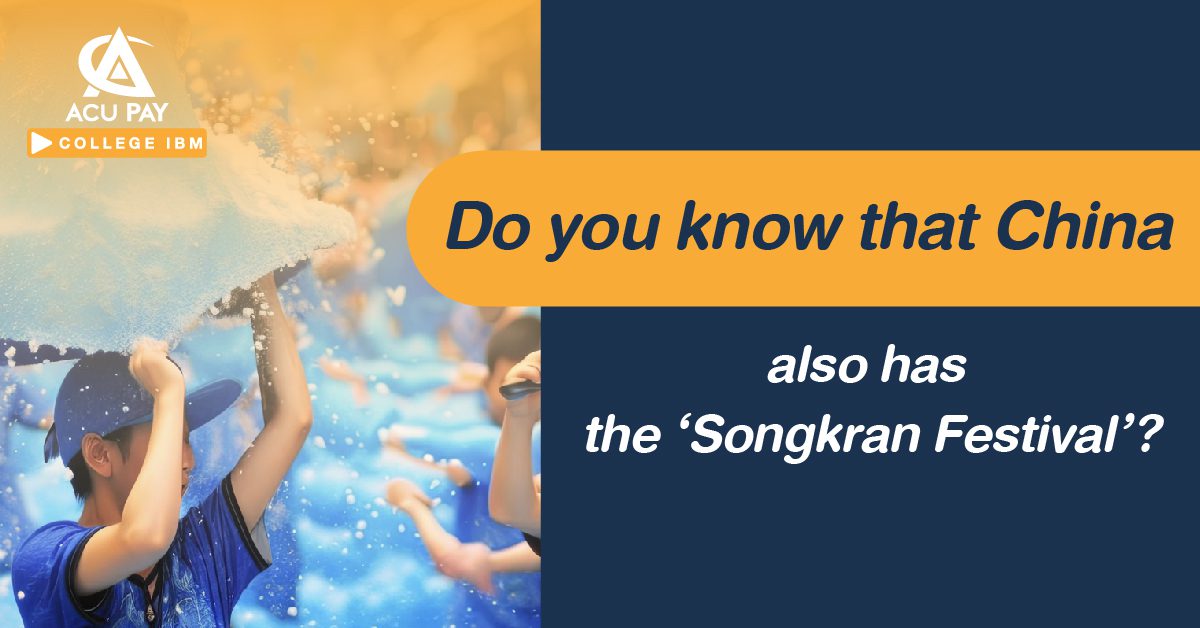

Songkran Festival in China is found in some areas in Southeast Asia or ASEAN in Xishuangbanna, Dehong, and Jinghong (Chiang Rung), and Yunnan, an area of the group called “Tai people” or Shan people.
Tai people consider Songkran an important tradition and housewarming, which falls on April 13-15 every year according to the calendar of Tai people, just like Thai Songkran.
The Songkran Festival name that the Chinese people generally call 泼水节 (Poshui jie) which means water-splashing festival, but for Tai ethnic groups in Dehong, called 摆栓南 (Bai xuan nan) or 摆赏建 (Bai shang jia). The ethnic group “De’anɡ”, a tribe in Dehong that spread to many areas in Yunnan, calls this festival 浇花节 (Jiao Hua Jie). Still, for Thai Songkran, the Chinese people call 宋干节 (Song gan jie) with the transliteration “Songkran” in Thai.
Tai people believe that splashing water will wash away the bad and start the new year with the best of all. People who get the most water splashing at will be the happiest in the New Year. Water splashing will also convey the good wishes of Tai people who wish for safety and happiness throughout the year.
The Songkran festival of Tai people in China where is nationally famous, and also a popular site for foreigners to visit is as follow;
These two festivals are popular among many foreign tourists. Each year, tens of thousands of people from Tai people in China, Myanmar, Lao, and Thais and Chinese and foreigners play in the water or splash it with fun.
Songkran in China is slightly different in terms of beliefs and rituals according to each region of China. For example, at Xishuangbanna, there will be a dragon boat race at the Lancang River or Lan Chang, Mekong River that flows through China.
In addition, a lantern was also released at night on Songkran Day (April 13) to wish for the sky. The lantern is called the “Khong Ming lantern” or “Zhuge Liang lantern”. For Thailand, we tend to float more lanterns during the Loy Krathong Festival, but in other rituals such as making merit, sprinkling water onto a Buddha image, making sand chedi, and paying respect to the elders, similar to Thai traditions.

ให้ทุกเรื่องการเงินเป็นเรื่องง่าย เริ่มต้นวันดีๆ ไปกับเรา MAKE A GREAT DAY WITH ACU PAY